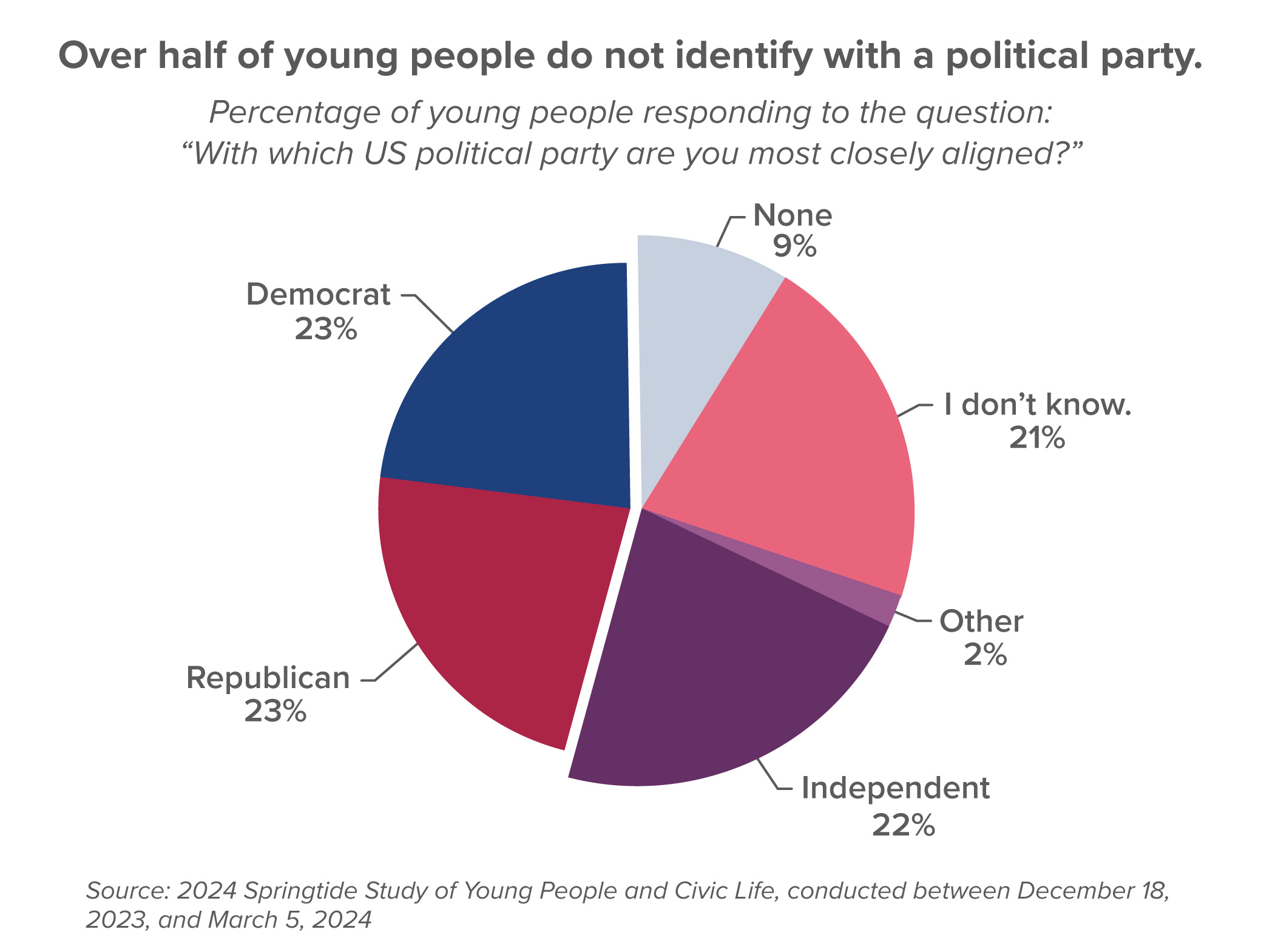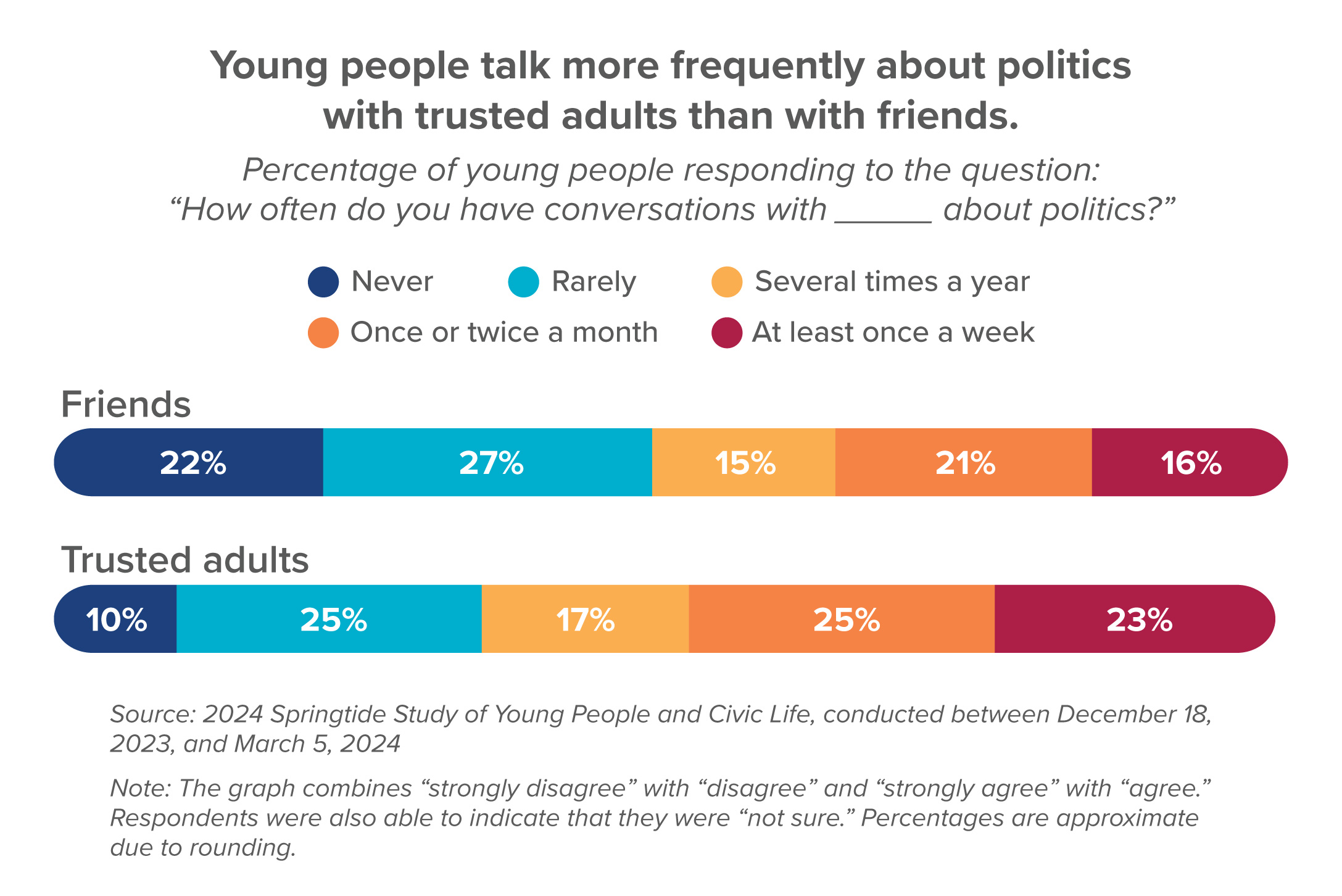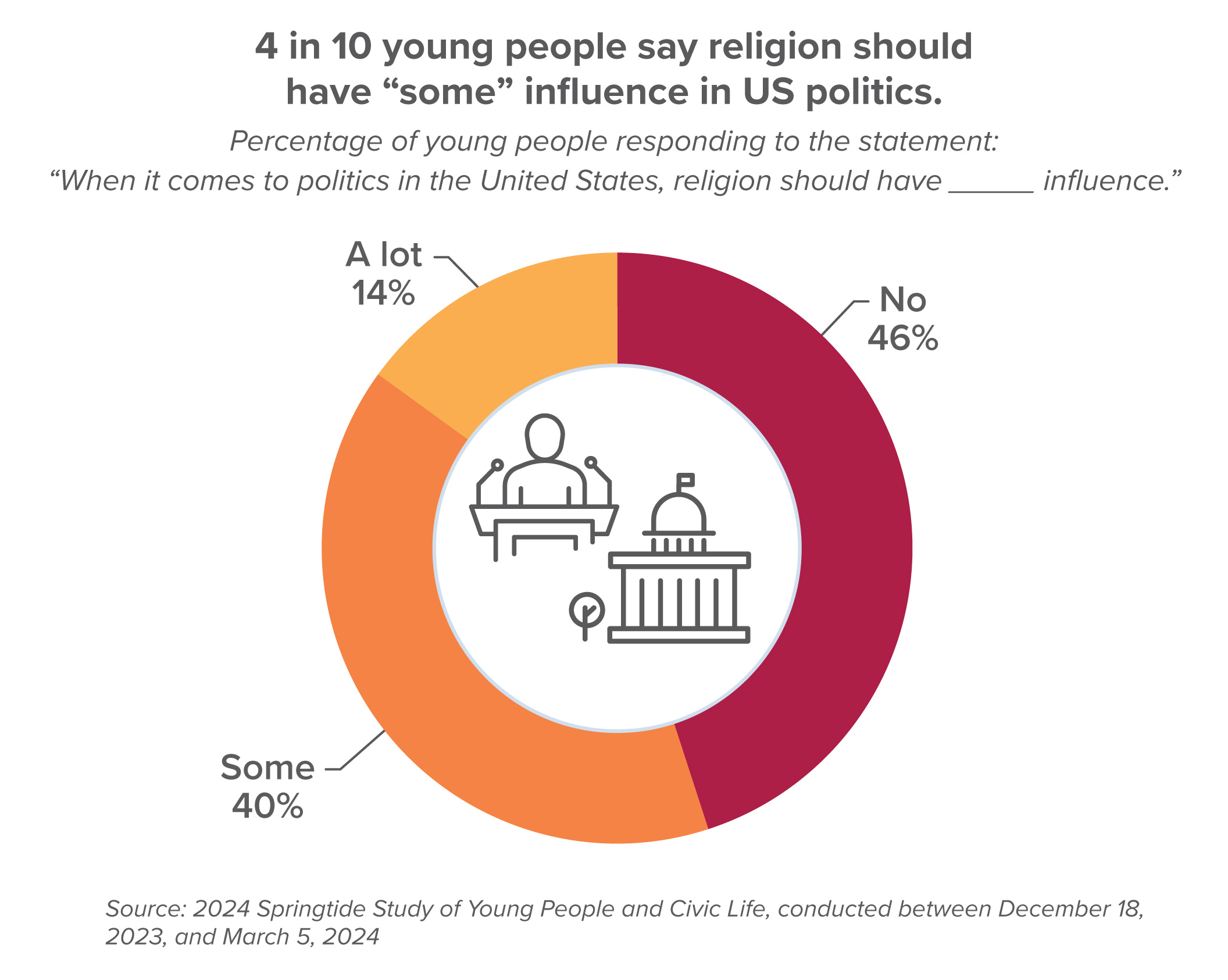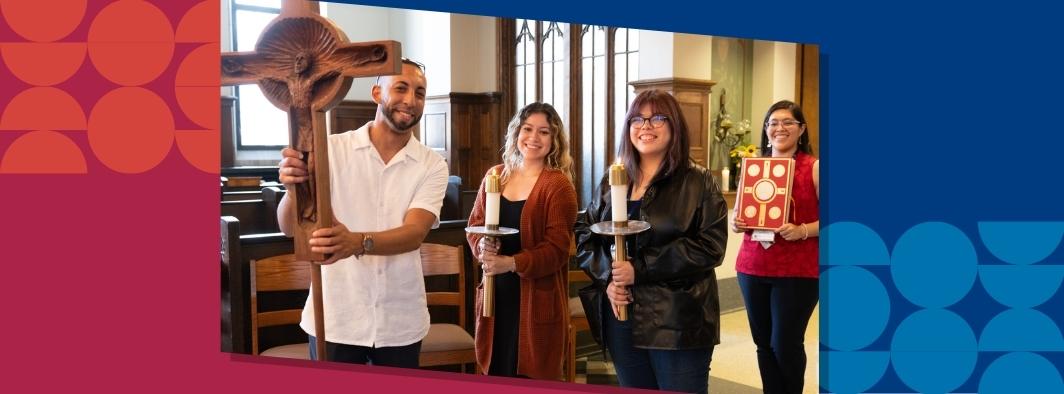How and Why Teens and Young Adults Participate in Civic Life
More than half of young people do not identify with a major political party. Many don’t trust political institutions, yet they care deeply about social issues.
In 2024, Springtide Research Institute surveyed more than 5,500 young people and interviewed over 75 more to better understand the complex dynamics that shape young people’s civic care. Our research uncovered that patterns of civic care develop long before a person can vote. Young people form habits through volunteering, protesting, or seeing and sharing information on social media that will affect their civic life for decades to come.
Five Key Findings
-
Young people’s civic identities do not align neatly with traditional political categories.
More than half of young people do not identify with either Democrats or Republicans. Most prefer flexibility and issue-based engagement over strict partisan affiliation. Many feel jaded by political parties and politicians, seeing politics as performative and divisive.

-
Young people report low levels of trust in political institutions.
More than one–third of young people express distrust toward the US presidency. More than one-quarter distrust Congress, the Supreme Court, and the election system (the method by which elections are conducted in the US).
About 3 in 10 young people strongly distrust political institutions.
Percentage of young people who indicate distrust in response to the question: “How much do you trust each of the following?”
Source: 2024 Springtide Study of Young People and Civic Life, conducted between December 18, 2023, and March 5, 2024
Note: This graph displays the percentage of young people who chose option 1 (“do not trust at all”), on a scale of 1 to 4. Respondents were also able to indicate that they were “not sure.”
-
Despite distancing from politics, very few young people report not caring about any political issues.
Young Americans speak passionately about issues like education, the economy, abortion, and climate change. They explain how relationships, communities, personal experiences, and media motivate and shape how they care about specific issues.
Young people rank education, abortion / reproductive issues, and the economy as the top issues they care about.
Percentage of young people selecting the following issues in response to the question: “Which of the following issues do you care about?”
Source: 2024 Springtide Study of Young People and Civic Life, conducted between December 18, 2023, and March 5, 2024
Note: Respondents were given a list of options to choose from and asked to select all that apply. Respondents could also write in an option not listed. The graph above presents the 10 most common issues selected by respondents.
-
Parents, teachers, and other trusted adults play a crucial role in cultivating young people’s civic care.
Trusted intergenerational relationships are key to teaching young people to think critically, discuss difficult topics with integrity, and bridge connections to civic institutions. Negative experiences, such as feeling unheard or encountering closed-minded attitudes, can discourage civic participation.

-
Few young people say that religion should have “a lot” of influence on politics in the US. More commonly, young people prefer that religion have “some” or “no” influence.
Young evangelicals are the most likely to say that religion should have “a lot” of influence; non-religious young people are the least likely to agree. Among the most important things in their lives, young people are more than twice as likely to count religion than politics.

When asked what others can do to promote these kinds of civil conversations about political issues—conversations that feel accepting, engaging, friendly, and informative—young people share things like:
By actually listening. And wanting to listen. And actually working on it.
—Ethan, 25
Being able to admit that you’re wrong, or just admitting the possibility of being wrong.
—Simon, 23
I would say, like, taking in what you have to say, giving you really great feedback, and just challenging your ideas sometimes.
—Ayla, 20
Be very open to new ideas . . . even if you’re not willing to accept them; just be willing to sit down and have a nonaggressive conversation.
—Caden, 18
[When] they understand my point, and they don’t shame me for the point.
—Ximena, 17
Be more neutral.
—Robert, 13
You can purchase the full free report, Cultivating Care: How & Why Young People Participate in Civic Life here.






